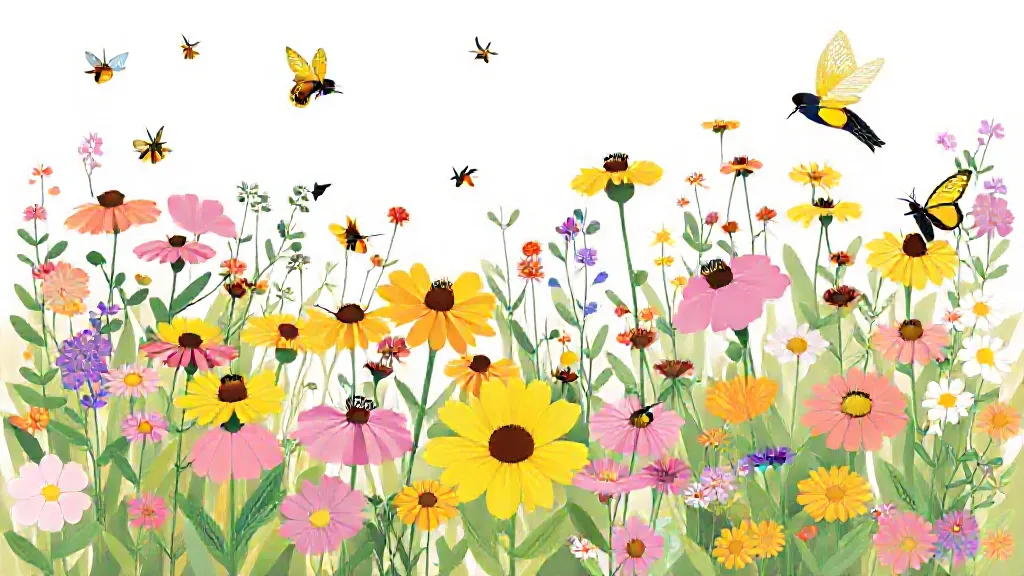Pollinators, including bees, butterflies, birds, and bats, play an indispensable role in maintaining the health of our ecosystems. They are responsible for the fertilization of approximately 75% of the world’s flowering plants, which translates to about 35% of global food production. The decline in pollinator populations poses a significant threat to biodiversity, food security, and the overall health of our environment.
This article delves into the critical reasons why protecting pollinators is essential and the broader implications of their decline.
The Ecological Importance of Pollinators
Pollinators contribute to the reproduction of plants, which are the foundation of most ecosystems. Without these creatures, many plants would fail to reproduce, leading to a cascade of negative effects on other species that depend on these plants for food and habitat.
For example, many fruits, vegetables, and nuts rely on pollinators for their production. The loss of pollinators could lead to a significant reduction in these food sources, affecting not only human diets but also the animals that depend on these plants for survival.
Economic Impact of Pollinator Decline
The economic implications of pollinator decline are staggering.
In the United States alone, pollinators contribute an estimated $20 billion annually to the agricultural economy. Crops such as almonds, blueberries, and cherries are heavily reliant on pollinators. A decline in these populations could lead to increased food prices, reduced availability of certain foods, and a significant economic burden on farmers and consumers alike.
Protecting pollinators is not just an environmental issue; it is an economic necessity.
Threats Facing Pollinators
Pollinators face numerous threats, including habitat loss, pesticide exposure, climate change, and disease. Urbanization and agricultural expansion have led to the destruction of natural habitats, making it difficult for pollinators to find food and nesting sites.
Pesticides, particularly neonicotinoids, have been linked to the decline of bee populations. Climate change further exacerbates these issues by altering the availability of flowering plants and disrupting the synchrony between pollinators and their food sources.
The Role of Biodiversity in Pollinator Health
Biodiversity is crucial for the health of pollinator populations.
A diverse array of plants provides a variety of food sources for pollinators throughout the growing season. Additionally, diverse ecosystems are more resilient to changes and stressors, which can help sustain pollinator populations. Conservation efforts that focus on preserving and restoring habitats can significantly benefit both pollinators and the ecosystems they support.
Community Involvement in Pollinator Protection
Community involvement is vital in the fight to protect pollinators. Individuals can create pollinator-friendly gardens by planting native flowers, reducing pesticide use, and providing habitats such as bee hotels. Educational programs that raise awareness about the importance of pollinators can empower communities to take action.
Local governments and organizations can also play a role by implementing policies that protect pollinator habitats and promote sustainable agricultural practices.
Global Initiatives for Pollinator Conservation
Several global initiatives aim to address the decline of pollinators. The United Nations has recognized the importance of pollinators in achieving the Sustainable Development Goals and has launched various programs to promote their conservation.
International cooperation is essential, as pollinator species often migrate across borders. Collaborative efforts can lead to more effective strategies for habitat preservation, research, and public awareness campaigns.
Future Directions for Pollinator Research
Research into pollinator health and conservation is ongoing, with scientists exploring innovative solutions to combat the challenges faced by these species.
Studies are being conducted on the impacts of climate change, habitat restoration techniques, and the effects of agricultural practices on pollinator populations. Continued investment in research is crucial for developing effective strategies to protect pollinators and ensure their vital role in our ecosystems is maintained.
Conclusion: A Call to Action
Protecting pollinators is essential for the health of our ecosystems, the economy, and food security.
As individuals, communities, and nations, we must take action to safeguard these vital species. By promoting biodiversity, reducing pesticide use, and supporting conservation initiatives, we can contribute to a healthier planet for future generations. The survival of pollinators is intertwined with our own, and it is our responsibility to ensure their protection.
